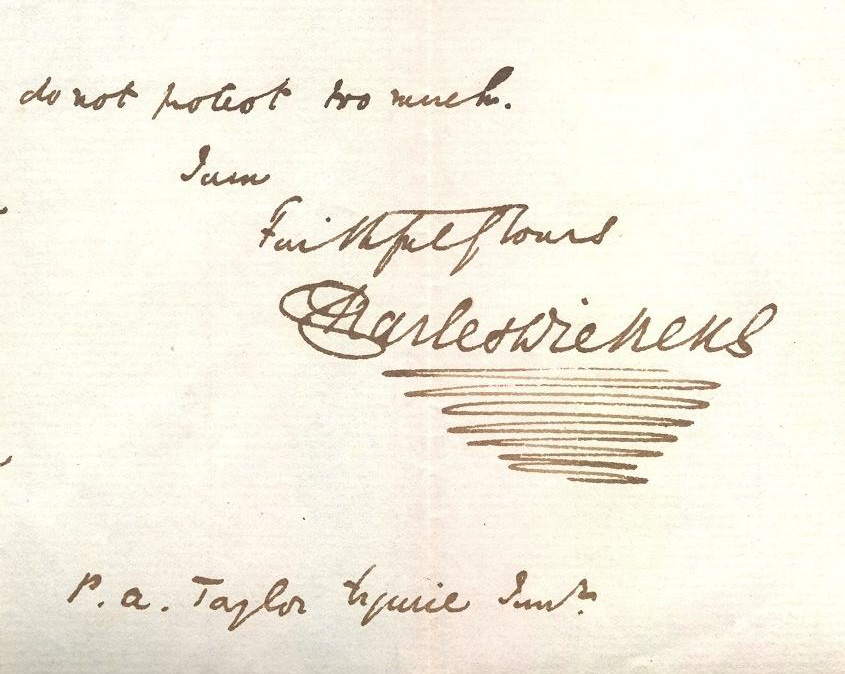
On 4 March at 6pm we hosted a roundtable with five experts in nineteenth-century archives and handwriting from a range of leading projects: Addressing Health: Morbidity, Mortality and Occupational Health in the Victorian and Edwardian Post Office (https://addressinghealth.org.uk), the Charles Dickens Letters Project (https://dickensletters.com), the George Eliot Archive (https://georgeeliotarchive.org), Melville Electronic Library (https://melville.electroniclibrary.org), and One More Voice (https://onemorevoice.org). We heard from each participant about a problem they have come across and how they have solved it, from identifying forgeries to recovering understudied voices, before opening the discussion more broadly to working with archives and manuscripts both in person and online, and tips for deciphering handwriting.
Resources (shared in Zoom chat)
- Zooniverse: https://www.zooniverse.org
- Christopher Ohge’s slides: https://docs.google.com/presentation/d/1nzjuxP2btriE-8zETuCArhjcuO5oqBvn8qxHk_qOZJE
- American Paleography: https://americanpaleography.org
- Livingstone Online: https://livingstoneonline.org
- Undisciplining the Victorian Classroom: https://undiscipliningvc.org
- Social Justice and the Digital Humanities: http://criticaldh.roopikarisam.com
- Kim Gallon, “Making a Case for the Black Digital Humanities”: https://bit.ly/2O02ul1
- “Do You Know AI or AI Knows You Better?” (Peter-Paul Verbeek): https://bit.ly/3kKtdOh
- “Unlocking history through automated virtual unfolding of sealed documents imaged by X-ray microtomography”: https://www.nature.com/articles/s41467-021-21326-w
- Minimal Computing: https://go-dh.github.io/mincomp/
Speakers
Dr Leon Litvack, Queen’s University Belfast
Leon Litvack is Reader in Victorian Studies at Queen’s University Belfast. He is Principal Editor of the Charles Dickens Letters Project (dickensletters.com), and a world authority on Dickens’s correspondence and manuscripts. He specialises in microhistorical and archival approaches to Dickens, and currently holds UK Cabinet appointments to the Advisory Council on National Records and Archives, and the Forum on Historical Manuscripts and Academic Research. In the course of authenticating Dickens material for auction houses and manuscript dealers, Leon has uncovered a number of forgeries, some of which have been reported on in recent articles in the Sunday Telegraph and the Daily Mail; this work has contributed to the maintenance of the reputations of a number of major firms in both the UK and North America, and demonstrates how research in the humanities impacts on the economy and international trade, as well as on the time-honoured fields of arts and culture.
Dr Kathleen McIlvenna, University of Derby
Kathleen McIlvenna is a historian and public historian specialising in the nineteenth century work, pensions, communications, and heritage. She is currently Lecturer in History at the University of Derby where she teaches on the MA in Public History and Heritage. Kathleen is Co-I on the Wellcome funded collaborative research project, Addressing Health: Morbidity, Mortality and Occupational Health in the Victorian and Edwardian Post Office. An integral part of the project focuses on pension records held at the Postal Museum and the project has recently launched a crowdsourcing transcription project to digitise these records.
Dr Christopher Ohge, School of Advanced Study, University of London
Christopher Ohge is Lecturer in Digital Approaches to Literature at the School of Advanced Study, University of London. He also serves as Associate Director of the Melville Electronic Library and an associate editor of Melville’s Marginalia Online. Previously he worked as an editor at the Mark Twain Project at the University of California, where his editorial credits included the final volume of the Autobiography of Mark Twain, Mark Twain: April Fool, 1884, and various digital texts at the Mark Twain Project Online. Other published work on literature and digital humanities has appeared or is forthcoming in Essays in Criticism, The Mark Twain Annual, American Literary History, Leviathan: A Journal of Melville Studies, Scholarly Editing, and in several edited collections.
Professor Beverley Rilett, University of Nebraska-Lincoln
Since completing her doctorate in 2013, Beverley Park Rilett has been a research assistant professor and lecturer in the English department and a faculty fellow in the Center for Digital Research in the Humanities (CDRH) at the University of Nebraska, Lincoln. In the fall, she will begin a new position as Associate Research Professor at Auburn University’s Special Collections and Archives. Dr Rilett has published several chapters and critical articles that focus on the life and works of George Eliot, and she is currently writing a revisionist biography and a literary companion. She is vice-president of the George Eliot Fellowship and inaugural director of the George Eliot Archive, a major, peer-reviewed project launched in 2018. Additionally, she created the George Eliot Review Online, which was launched in 2017 to provide open access to the journal’s fifty years of scholarship, and George Eliot Scholars, launched in December 2020 as a digital commons where researchers can post their work and discover others’ contributions.
Professor Adrian S. Wisnicki, University of Nebraska-Lincoln
Adrian S. Wisnicki is an Associate Professor of English and the Digital Humanities Program Coordinator at the University of Nebraska-Lincoln. He current leads One More Voice, a new digital humanities initiative, that seeks to recover non-European contributions from nineteenth-century British imperial and colonial archives. He is also the director of Livingstone Online, a major peer-reviewed digital humanities project focused on the written and material legacies of explorer and abolitionist David Livingstone, and of a related project, the Livingstone Spectral Imaging Project. Professor Wisnicki’s research applies interdisciplinary analysis, postcolonial theory, and digital humanities methodologies to explore the influence that non-western individuals and cultural contexts exerted on the production of Victorian imperial and colonial literary discourse. This approach moves critical focus away from biographies and narrative histories of iconic explorers and canonical writers, and instead delves into nineteenth-century regional histories and intercultural interactions around the globe.
Chair: Dr Emily Bell, University of Leeds
